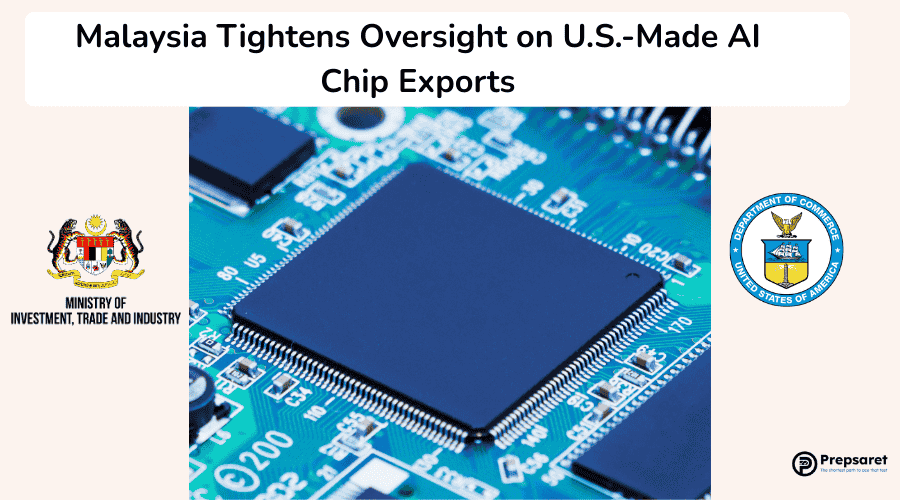Malaysia’s Ministry of Investment, Trade and Industry (MITI) has announced a new policy requiring prior approval for the export, transshipment, or transit of high-performance artificial intelligence (AI) chips manufactured in the United States.
The new regulation takes effect immediately.
According to a statement issued on Monday, MITI said that any individual or business intending to move such AI chips across Malaysia’s borders must seek a trade permit at least 30 days before the shipment.
This includes goods not explicitly named on Malaysia’s current strategic items list, which governs the handling of sensitive technologies.
The ministry emphasized that this action is part of a broader effort to reinforce existing controls while it considers whether to officially add U.S.-made high-performance AI chips to its strategic list.
“Malaysia stands firm against any attempt to circumvent export controls or engage in illicit trade activities by any individual or company, who will face strict legal action if found violating the laws,” the ministry warned.
Related story: Nvidia Surges to $4 Trillion Valuation, Cementing Its AI Dominance
A Move Amid Rising Global Scrutiny
This development comes as global tensions grow around the distribution of advanced semiconductor technology, especially in the context of U.S.-China trade dynamics.
As reported by the Financial Times in March, Malaysia has been under increasing pressure from Washington to help restrict China’s access to powerful AI chips that could enhance its artificial intelligence capabilities.
The United States has been intensifying efforts to curb the shipment of advanced semiconductors to China, citing national security concerns.
Malaysia, being a key player in the global semiconductor supply chain, has found itself navigating a complex regulatory environment.
In addition to the new permit requirement, MITI is also scrutinizing whether domestic laws were broken in a separate incident involving servers tied to a Singapore-based fraud case.
Those servers may have contained sophisticated chips covered by U.S. export restrictions, further intensifying Malaysia’s focus on compliance.
The ministry’s latest announcement underscores the country’s growing commitment to align its policies with evolving international norms concerning the trade of high-tech components.
While the measure is not a blanket ban, it places a clear layer of oversight to ensure that sensitive technologies are not misused or exported unlawfully.
With these new rules in place, Malaysia aims to strike a balance between its role in global tech supply chains and the responsibility to uphold security-oriented trade standards.
Read next: Google to Offer Steep Cloud Discounts to U.S. Government Amid Budget Push

